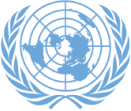Thank you Chair and thank you to the panelists for sharing their perspectives on the interlinkages between combating terrorism and achieving the Sustainable Development Goals. I note with particular satisfaction that the panelists at this morning’s session represent the various geographical regions and that the keynote speaker, Ambassador Rhonda King, Permanent Representative of St. Vincent and the Grenadines, is from my own region of Latin America and the Caribbean.
The discussion so far has focused on the prevention of terrorism. Panellists and speakers have recognized that terrorism has a cost in instability, post-conflict rebuilding and the toll in human suffering. We also recognized that the impact of terrorism is a threat to the achievement of the Sustainable Development Goals and that by preventing terrorism we remove the threat to the achievement of the SDGs.
Indeed, many of the tools for combating terrorism are to be found in the SDGs themselves, which address a number of the root causes of terrorism, including poverty, inequality, injustice and discrimination, and lack of respect for basic human rights and fundamental freedoms.
I’m glad to see that the Office of Counter-Terrorism also recognizes the interlinkages between the work that it does and the SDGs. And even though we are bound by the Chatham House Rule during this retreat, we need to find a way to ensure that the outcome of our exchanges has resonance beyond this Conference Center. We need to inject the perspective of developing countries into the conversation about terrorism. And we need to inject terrorism into the broader conversation about the SDGs. UNOCT can help in this respect by promoting partnerships between and among developing countries to complement existing partnerships, which are mainly between developed and developing countries.
Let me conclude by injecting a more optimistic note into our discussion, lest we’re overcome by despair at the enormity of the challenge ahead of us. Last month, the President of ECOSOC invited Dr. Steven Pinker, Professor of Cognitive Psychology at Harvard University, to share with us his views on the state of the world and the global challenges with which the United Nations is grappling. To the surprise of many, including myself, Professor Pinker painted a picture that was altogether more optimistic than many of us, myself included, believed. He talked about the hundreds of millions of people who have been lifted out of extreme poverty in the last few decades, the progress achieved in health and education worldwide, and, however counter-intuitive it might sound, the reduction in the number of deaths from armed conflict globally. He argued that the difference is in our perception of what is happening around us and our understandable preoccupation as global problem solvers with the crises around us which are amplified by the 24-hour news cycle. While it is true, he said, that the global community is facing novel threats often from individual and groups whose despair is such that human life, including their own, has no value in their eyes, new technological and other tools are available to combat these threats. In my view, also, in addition to information technology tools, intelligence gathering and sharing and other resources, we have in the SDGs perhaps the most potent tool of all because the 2030 Agenda addresses the root causes of terrorism.
I conclude by reiterating what I suggested before, and that is that we should find creative ways to ensure that the recommendations and ideas emanating from this retreat find their way into the broader conversation about terrorism and its impact on development and feed directly into the Secretary-General’s Sustaining Peace Agenda with its emphasis on preventive diplomacy.
I thank you.


